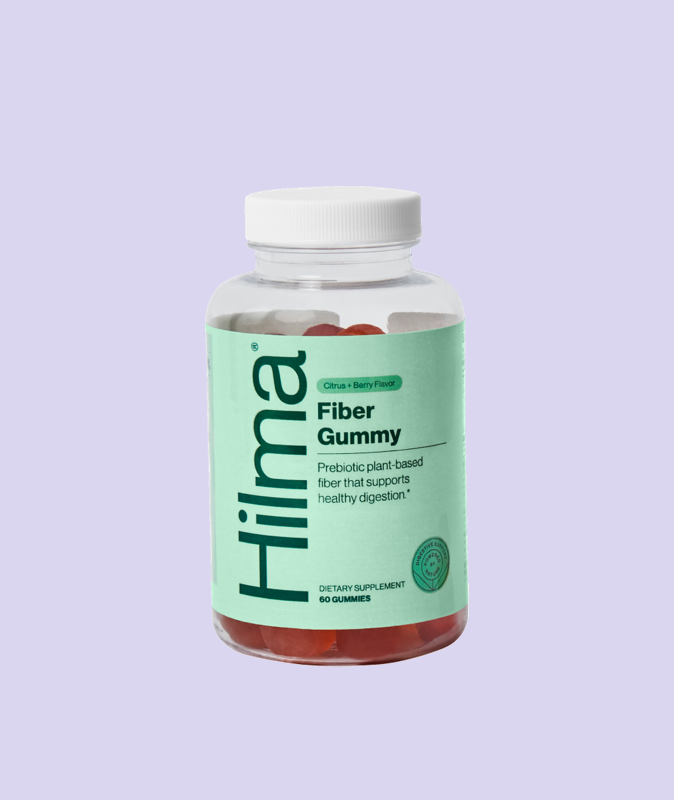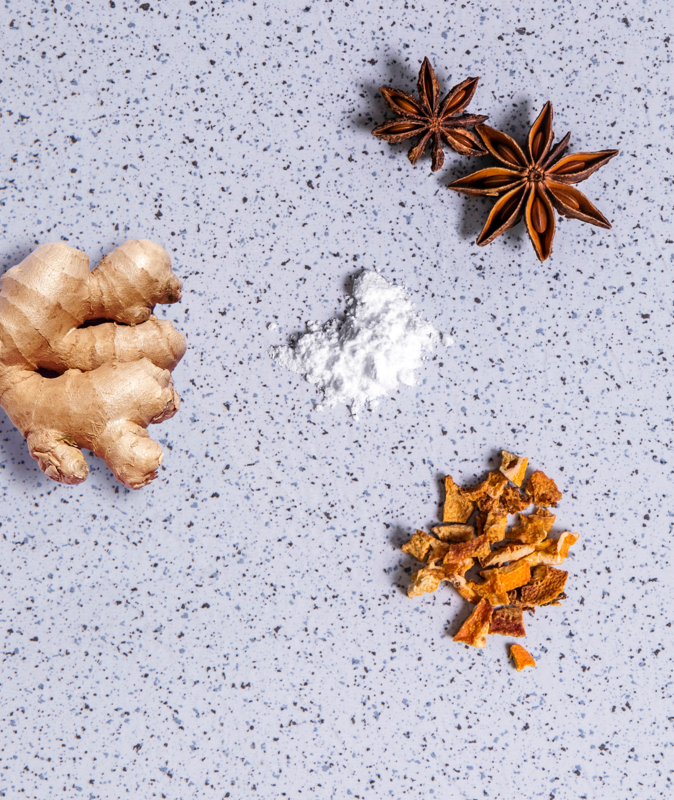
Fiber plays a crucial role in maintaining digestive health and overall well-being. Yet, despite its importance, many individuals fall short of meeting their daily fiber requirements, often without even realizing it. So, why is fiber so important? How can you tell if you're not getting enough fiber? And are there physical symptoms to watch out for? Let's explore the answers to these questions and learn why adequate fiber intake is vital for optimal health.
What is fiber?
Understanding the symptoms of not consuming enough fiber is important but first we need to know what fiber is and why it’s important. Fiber, also known as dietary fiber, is a type of carbohydrate found in plant-based foods that the human body cannot digest or absorb. Instead of being broken down and absorbed like other nutrients, fiber passes through the digestive system largely intact, providing a range of health benefits.
Fiber comes in two main forms: soluble fiber and insoluble fiber. Soluble fiber dissolves in water to form a gel-like substance in the digestive tract, while insoluble fiber does not dissolve and adds bulk to stool.
Some common sources of fiber include fruits, vegetables, whole grains, legumes, nuts, and seeds. Including a variety of fiber-rich foods in your diet is important for maintaining digestive health, promoting regular bowel movements, controlling blood sugar levels, lowering cholesterol levels, and reducing the risk of chronic diseases such as heart disease, diabetes, and certain types of cancer.
Why is fiber important?
Fiber is crucial for digestive health due to its numerous beneficial effects on the digestive system. Here are some key reasons why fiber is important for digestive health:
Promotes Regularity: Fiber adds bulk to stool, which helps move waste through the digestive tract more efficiently. This can prevent constipation and promote regular bowel movements.
Prevents Diverticular Disease: Adequate fiber intake can help prevent diverticula, small pouches that can form in the colon wall. High-fiber diets help maintain stool consistency and reduce pressure in the colon, lowering the risk of diverticular disease.
Supports Gut Microbiome: Fiber serves as a prebiotic, providing fuel for beneficial bacteria in the gut. These bacteria ferment fiber to produce short-chain fatty acids, which nourish the cells lining the intestine and support a healthy gut microbiome.
Aids in Weight Management: High-fiber foods are often lower in calories and more filling than low-fiber foods. Consuming fiber-rich foods can help control appetite, prevent overeating, and support weight management efforts.
Lowers Risk of Digestive Disorders: Fiber has been linked to a reduced risk of various digestive disorders, including hemorrhoids, gastroesophageal reflux disease (GERD), and colorectal cancer.
Regulates Blood Sugar Levels: Soluble fiber slows the absorption of sugar into the bloodstream, helping stabilize blood sugar levels. This can be beneficial for individuals with diabetes or insulin resistance.
Lowers Cholesterol Levels: Certain types of fiber, such as soluble fiber found in oats and legumes, can help lower LDL (bad) cholesterol levels by binding to cholesterol and promoting its excretion from the body.
Fiber plays a crucial role in maintaining digestive health by promoting regularity, supporting a healthy gut microbiome, aiding in weight management, and reducing the risk of digestive disorders. Including a variety of fiber-rich foods in your diet can contribute to overall digestive wellness and improve long-term health outcomes.
How can you tell if you're not getting enough fiber and are there physical symptoms to watch out for?
One of the most noticeable signs of insufficient fiber consumption is constipation. Fiber acts as nature's broom, helping to sweep waste through the digestive tract and prevent constipation. When there's not enough fiber in your diet, stool can become hard and difficult to pass, leading to discomfort and irregular bowel movements. If you find yourself struggling with constipation on a regular basis, it might be a sign that you need to increase your fiber intake.
But constipation isn't the only indicator of inadequate fiber consumption. Other physical symptoms can also signal a fiber deficiency. These may include:
Bloating and Gas: Fiber helps to regulate digestion and prevent bloating by promoting regular bowel movements. If you're experiencing frequent bloating or excessive gas, it could be a sign that you're not getting enough fiber in your diet.
Cravings for Sugary or Processed Foods: Fiber-rich foods tend to be more filling and satisfying than their low-fiber counterparts. If you find yourself constantly craving sugary or processed snacks, it could be your body's way of signaling a need for more fiber-rich foods to help keep you feeling full and satisfied.
Low Energy Levels: Fiber helps to stabilize blood sugar levels and prevent energy crashes by slowing down the absorption of sugar into the bloodstream. If you're feeling tired or sluggish throughout the day, it could be due to unstable blood sugar levels caused by inadequate fiber intake.
To ensure you're getting enough fiber in your diet, aim to consume between 25-35 grams of fiber per day. This can be achieved by incorporating a variety of fiber-rich foods into your meals and snacks. However, many people find it difficult to reach their fiber goals with just food alone. Our Daily Fiber + Digestive Enzymes can help supplement the food you're eating and help you reach the recommended 25-35 grams of fiber per day. l Opt for a mixture of soluble and insoluble fiber sources, as this is best for both tolerability and diversity of effects on gut flora.
What are soluble and insoluble fibers?
The main characteristic of soluble fiber is that it dissolves in water to form a gel-like substance in the digestive tract. It slows digestion and can help lower cholesterol levels and stabilize blood sugar levels. There are many health benefits of soluble fiber including reducing the risk of heart disease, improving blood sugar control, and promoting a healthy gut microbiome. Some foods that are rich in soluble fiber include:
- Oats and oat bran
- Barley
- Legumes (beans, lentils, peas)
- Apples
- Citrus fruits (oranges, grapefruits)
- Berries (strawberries, blueberries)
- Flaxseeds
- Chia seeds
The main characteristics of insoluble fiber are that it does not dissolve in water and it adds bulk to stool. It also promotes regular bowel movements and helps prevent constipation. The health benefits include supporting digestive health by keeping the digestive system regular and preventing constipation. It also helps maintain healthy weight by promoting satiety. You can find insoluble fiber in the following foods:
- Whole grains (wheat, barley, quinoa, brown rice)
- Wheat bran
- Nuts and seeds (almonds, sunflower seeds)
- Vegetables (carrots, celery, broccoli, kale)
- Fruit skins (apple skin, pear skin)
- Legumes (lentils, chickpeas, kidney beans)
- Psyllium husk
Incorporating a variety of both soluble and insoluble fiber-rich foods into your diet is important for overall digestive health and well-being. They work together to support regularity, promote a healthy gut microbiome, and reduce the risk of chronic diseases such as heart disease and diabetes.
By paying attention to your body's signals and ensuring you're meeting your daily fiber needs, you can support optimal digestive health and overall well-being. Remember, signs of fiber deficiency include constipation, bloating and gas, sugar cravings, and low energy levels. Fiber is your friend – so listen to your body and give it the fiber it craves!





